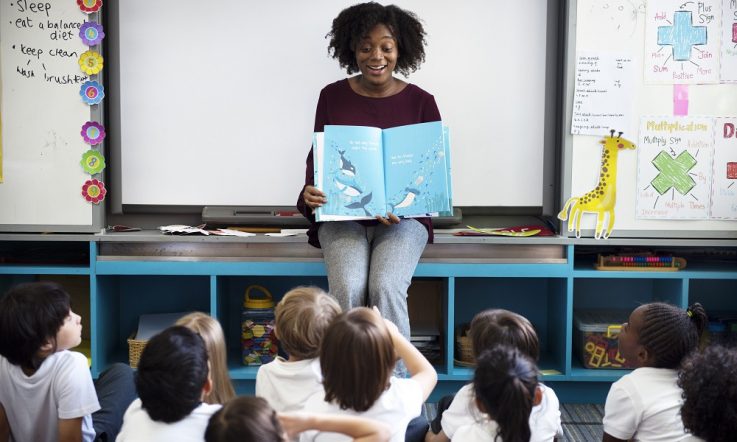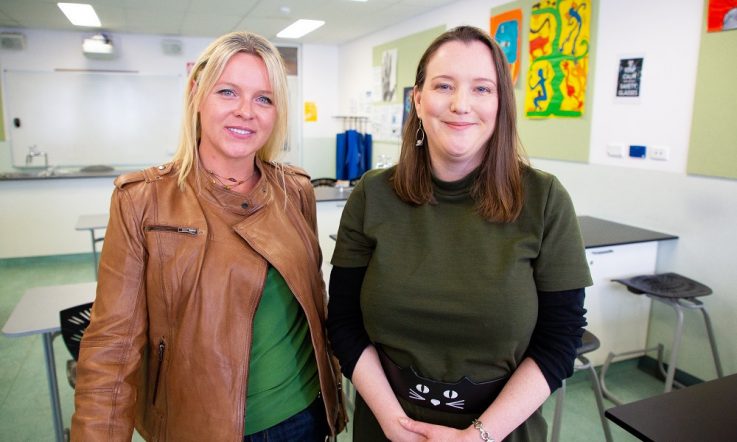The role of teachers in helping young people discover themselves and the world – and how they can then shape the world – is why teaching is the most important job in the world. But it is also the most important job for the world.
No other occupation offers as many ways to help others learn and grow in their most formative years and take responsibility for their own lives. As a student and as a teacher, to my current role as the CEO of ACARA (the Australian Curriculum, Assessment and Reporting Authority), I've been fortunate to meet many good teachers – but what makes a teacher great?
Here are five aspects of what great teaching has always been, is now, and always will be. They are in no particular order. They don't represent any ‘framework'. They are just my list. You might have others.
Open to learning and improvement
Great teachers will always aspire to be the best teachers they can be. They will be open to learning, they will aspire to excellence and will constantly think about ways to improve their practice. They will take their professional learning seriously, evaluating those experiences and offerings through the lens of whether it is going to lead them to changing the way they teach for the benefit of their students.
Providing respectful, structured learning environments
A good teacher will be respected. When I was training to be a teacher, at the end of my first practice round, the Dean of Studies at the school commented: ‘There are two types of teachers: popular and successful. You were popular.' Ouch!
Obviously, the Dean of Studies didn't mean to say all good teachers are unpopular. He himself was well-liked, but he wouldn't admit that. His point was that my relationship with my students is fundamentally a professional one, and that the measure of a good teacher is the learning that takes place.
Good teaching does not depend, as friendships usually do, on compatibility or preference, and the relationship is not one of mutual support. This is the basis of, and the rationale for, professional standards and the basis for ethical practices relating to a teacher's dealings with their students.
That is not to say teaching is not intensely personal. It is not limited to transmission of subject knowledge and, at its best, it deeply involves the growth of the whole student as a human being.
Certainly, great teaching involves having a good relationship with students. But those good relationships are based on trust, expertise and respect, on being fair, being reliable, being a person of your word, being a person who offers structure and consistency in order to provide a classroom environment where learning happens.
It is true that, often, the realities of the classroom and the school seem light years away from such elevated visions of teaching. Rowdy kids, unsettled Friday afternoons, outbreaks of bullying, encounters with parents who are either too demanding, or not demanding enough – all these occur and place far more immediate challenges on teachers. Teaching is a challenging profession.
But, as many teachers know, it is often through these experiences, not in spite of them, that teachers find the way to relate to their students professionally, which puts their needs as learners at the forefront.
Subject knowledge and passion
Many of us, in choosing to become teachers, have been inspired by great teachers we had at school – people who showed they were committed to our intellectual and personal development by the way they taught. In particular, it was their deep knowledge and passion for their subject that was inspiring.
I had a number of such teachers, but one stands out in particular. His name was Kevin Garrity and he was my HSC maths teacher. He was slightly eccentric, and he would take any opportunity he could to help us see how mathematics could be applied to our understanding of the world. Kevin would set us tricky calculus problems, and as he wandered around the room, he would often wave a hand-held fan over us. One day, I asked him, ‘Sir, what are you doing?' and he replied, ‘I am fanning the flames of wonder!'.
‘Fanning the flames of wonder' is the best summary I have ever heard of the role of teaching.
Inspiring questions and fanning the flames of wonder
A great teacher has the ability to inspire students to ask more questions, not just to answer them. Their role in leading students to knowledge is not to satisfy their desire for knowledge, but exactly the opposite: it is to make them hungrier and thirstier for more – more knowledge, more skills, more understanding.
A good lesson will conclude with students knowing they have learnt something, but a great lesson will conclude with students being unsatisfied with what they've learnt, wanting to learn more, and asking more questions. That's fanning the flames of wonder. That's great teaching.
And the nature of their questions will branch out into an ever-widening circle of interests and concerns. Which brings me to a fifth dimension of great teachers.
Understanding the wider purposes of education
The earliest known curriculum document was a two-word inscription on the Temple of Apollo at Delphi in Greece. It read simply, ‘Know yourself'. Knowing yourself and examining one's life in a systematic and fundamentally honest way, so as to become wise – this is the most profound outcome of a successful education.
Developing in students a commitment to thoughtful, honest, purposeful human agency, respectful of others and embracing the common concerns of one's communities, this is the wider objective of the calling of a teacher: to help young people come to know themselves and the power they have to change the world.
When teachers do these things well, their conversations with their students about knowledge and the world under construction will flourish from the creative and critical thinking of a new generation of lifelong learners who understand that they have minds, and that they can use them responsibly for the common good.
What do you consider to be the qualities and characteristics that make a great teacher? Compare your thoughts with a colleague. Are there common threads and themes that emerge? How do these qualities influence your own practice and professional goals?



